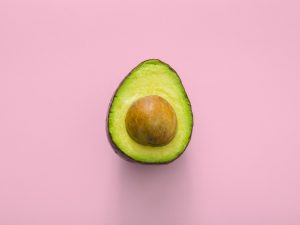Functional Foods Trending: Beyond Basic Nutrition
The food industry is constantly evolving, and one of the latest trends that is taking the health and wellness world by storm is functional foods. Gone are the days where food was solely consumed for sustenance and basic nutrition. With more and more people becoming health-conscious and looking for ways to improve their overall well-being, the demand for functional foods is on the rise. These foods go beyond basic nutrition and are packed with specific nutrients and compounds that offer additional health benefits. Let’s take a deeper look into the world of functional foods and why they are trending beyond basic nutrition.
The Rise of Functional Foods
The concept of functional foods is not entirely new, as certain foods have been known for their medicinal properties for centuries. However, with advancements in nutrition science, it is now possible to identify and isolate specific nutrients and compounds that offer health benefits beyond basic nutrition. This has paved the way for the development of functional foods that target specific health concerns.
According to a report by Zion Market Research, the global functional foods market was valued at 140.8 billion USD in 2018 and is projected to reach 196.9 billion USD by 2025. This staggering growth can be attributed to the increasing awareness and demand for functional foods among consumers.
Functional Foods vs. Fortified Foods
Before we delve deeper into functional foods, it is important to understand the difference between functional foods and fortified foods. While both these terms may seem similar, they are quite different in terms of their purpose and composition.
Fortified foods are regular foods that have been enriched with specific nutrients to boost their nutritional value. For example, milk is fortified with vitamin D to prevent deficiency among consumers. On the other hand, functional foods are specifically formulated to provide health benefits beyond basic nutrition. They contain specific nutrients and compounds that offer targeted health benefits.
Types of Functional Foods
1. Probiotics
Probiotics are live microorganisms that can offer numerous health benefits when consumed in adequate amounts. They are commonly found in fermented foods like yogurt, kimchi, and sauerkraut. Probiotics help maintain a healthy balance of gut bacteria, which is essential for digestive and immune health.
2. Prebiotics
Prebiotics are non-digestible fibers that act as food for the beneficial bacteria in the gut. They are typically found in foods like garlic, onions, bananas, and asparagus. Prebiotics help promote the growth of good bacteria in the gut, leading to improved digestive health.
3. Omega-3-fatty-acid-rich Foods
Omega-3 fatty acids are essential for heart health, brain function, and overall well-being. While fatty fish like salmon and tuna are rich sources of omega-3 fatty acids, plant-based sources like flaxseeds, chia seeds, and walnuts are gaining popularity among vegetarians and vegans.
4. Fiber-rich Foods
Fiber is an important nutrient that is often overlooked. It helps regulate digestion, promotes satiety, and aids in weight management. Functional foods that are rich in fiber include whole grains, fruits, and vegetables.
5. Foods with Antioxidants
Antioxidants are compounds that protect the body from damage caused by free radicals. Foods rich in antioxidants, such as berries, dark chocolate, and green tea, have been linked to a reduced risk of chronic diseases such as cancer and heart disease.
The Benefits of Functional Foods
The main advantage of functional foods is that they offer targeted health benefits without any additional effort. By simply incorporating these foods into your daily diet, you can reap their numerous health benefits. Some of the potential benefits of functional foods include improved heart health, better digestion, boosted immunity, and higher energy levels, among others.
Moreover, consuming functional foods is a more natural and sustainable way of addressing health concerns compared to relying on supplements. As long as you consume them in moderation, functional foods can play a crucial role in improving your overall well-being.
In Conclusion
Functional foods are more than just a trend; they are a reflection of the growing interest in preventive healthcare. With the rise in chronic diseases and the increasing demand for healthier food options, functional foods are here to stay. By incorporating these foods into our daily diets, we can not only improve our health but also prevent future health problems. So let’s make the switch to functional foods and take a step towards a healthier and happier life.








